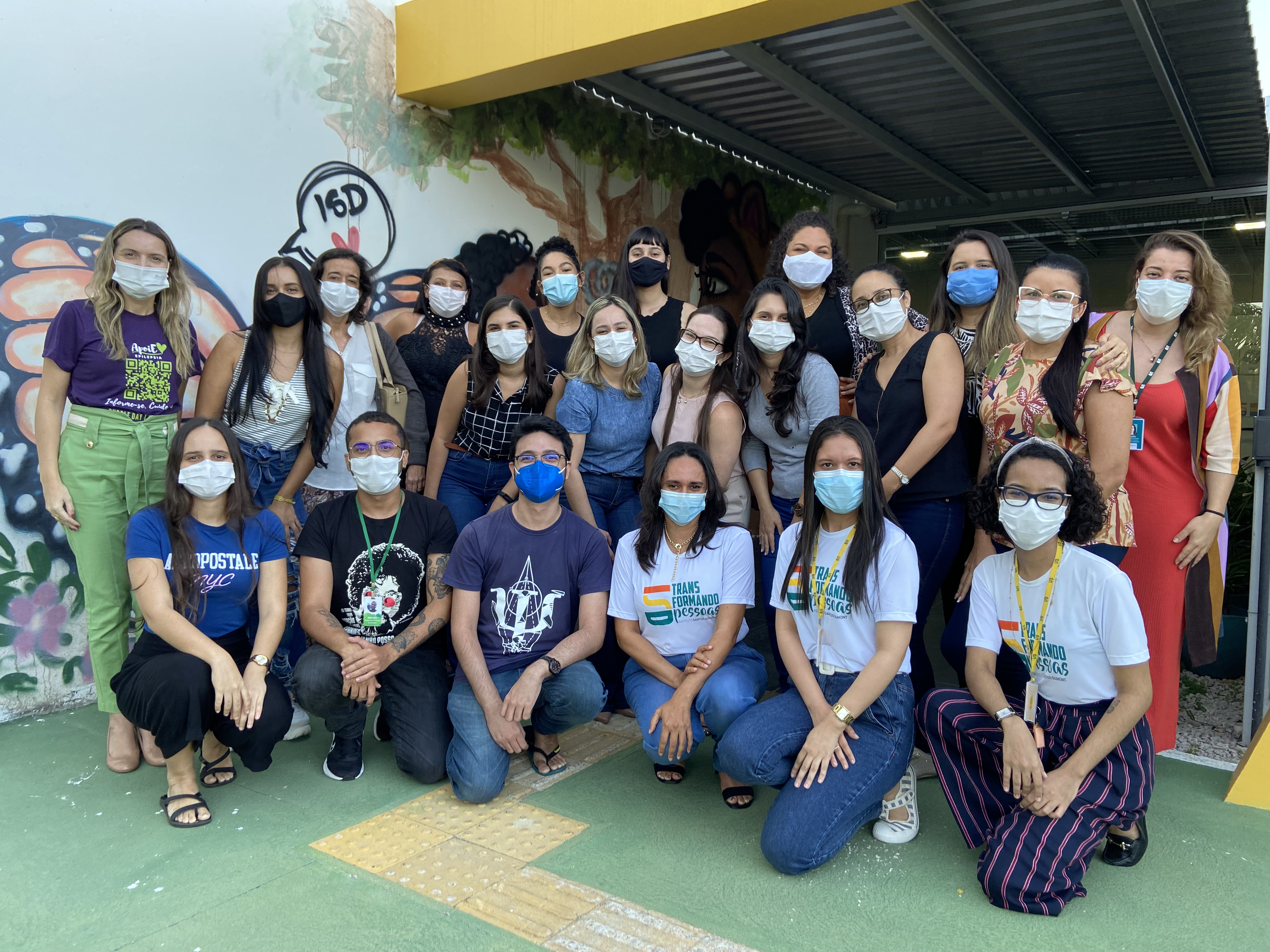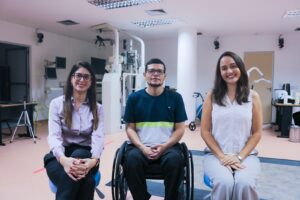The Santos Dumont Institute (ISD) concluded this Wednesday (24/11) the last ongoing health education action with professionals from the basic network of São Gonçalo do Amarante. Almost 30 workers, including doctors, nurses, physiotherapists, speech therapists and social workers, participated in training in care for patients with epilepsy, with content taught by multidisciplinary preceptors and residents of the Center for Education and Research in Saúde Anita Garibaldi (Anita), one of the ISD units in Macaíba that is part of the team of the Multidisciplinary Service Specialized in Pharmacoresistant Epilepsy (Semep ISD).
The technical discussions began in the morning and continued throughout the afternoon, with the presentation of real clinical cases related to patients with difficult-to-control epilepsy. ISD, through Anita, is a state reference for welcoming and caring for people with this condition. This Wednesday's action is part of a project that aims to train primary care professionals so that they know how to carry out monitoring, diagnosis, possible referrals and provide all the necessary support to the demands of any cases of epilepsy that reach the network . The disease can cause convulsions or non-convulsive seizures and, for example, sensations of distorted perception, uncontrolled movements of a part of the body or sudden fear.
“We offer training for health teams in São Gonçalo do Amarante, Macaíba and Extremoz. We are finalizing the third group in São Gonçalo do Amarante and, based on this training, these professionals will be able to diagnose and monitor patients with epilepsy. Furthermore, this training expands the relationship with ISD in order to provide more support. Today, ISD is a reference in RN for cases of drug-resistant epilepsy”, declares Celina Reis, child neurologist preceptor at ISD.
The objective of continuing education aimed at professionals in the public health network is to decentralize knowledge about epilepsy and enable other workers in the field, in addition to specialist doctors, to work on identifying the condition early. “This allows for more effective treatment. Epilepsy affects the person in their social, professional and family environment and, the sooner the diagnosis is made by any health professional, the possibility of a better quality of life. The Unified Health System has bottlenecks in relation to specialist doctors, such as neurologists, to care for patients with epilepsy”, comments ISD's adult neurologist medical preceptor, Nicelle Candez. As he explains, the condition can affect the patient's motor area, language and communication and social life.
São Gonçalo do Amarante is one of the municipalities covered by the Specialized Rehabilitation Center (CER IV ISD) located in Anita, and is the third recipient of training on the subject, which has already had professionals from Macaíba and Extremoz as an audience. Another 32 professionals from São Gonçalo attended Anita for training on the same topic, at the beginning of October. The Epilepsy clinic at CER IV ISD is a reference in Rio Grande do Norte for assistance with drug-resistant epilepsies – which trigger seizures that are difficult to control with medication.
Treatment
The CER IV ISD epilepsy clinic is a service for the reception, care and specialized multidisciplinary treatment of severe epilepsies, known as drug-resistant.
The Multidisciplinary Service Specialized in Pharmacoresistant Epilepsy (SEMEP), has a team of professionals from Neurosurgery, Pediatric and Adult Neurology, Social Work, Psychology, Physiotherapy, Speech Therapy, Occupational Therapy and Nutrition specialized in the Ketogenic Diet.
In addition to doctors Celina Reis and Nicelle Candez, SEMEP includes multidisciplinary neuropsychologist preceptor Joísa Araújo; the multi-professional nutritionist preceptor Luciana Câmara; the multidisciplinary occupational therapist preceptor Izabel Silva, and residents.
Text: Ricardo Araújo / Ascom – ISD
Photograph: Ricardo Araújo / Ascom – ISD
Communication Office
comunicacao@isd.org.br
(84) 99416-1880
Santos Dumont Institute (ISD)
It is a Social Organization linked to the Ministry of Education (MEC) and includes the Edmond and Lily Safra International Institute of Neurosciences and the Anita Garibaldi Health Education and Research Center, both in Macaíba. ISD's mission is to promote education for life, forming citizens through integrated teaching, research and extension actions, in addition to contributing to a fairer and more humane transformation of Brazilian social reality.













